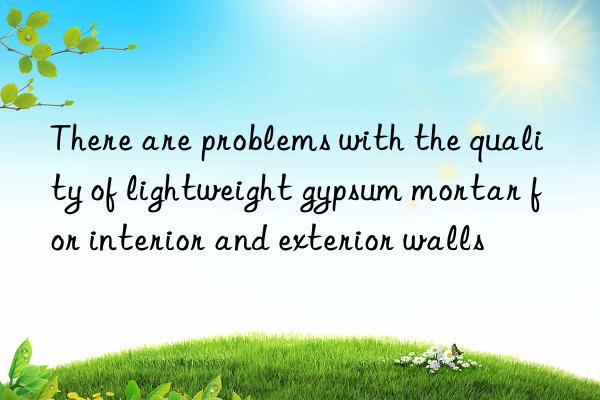
When purchasing finished gypsum mortar for interior and exterior walls, the gypsum mortar should be packaged completely. The product implementation standards, weight, production date, packaging, transportation or storage precautions and product inspection certificate issued by the manufacturer's quality inspector should be indicated on the package. For the health of your family, do not purchase temporary, unfinished plaster mortar.
After plastering, special attention should be paid to cleaning relevant parts in time. When plastering with gypsum mortar, clean the floor dust. After calendering, please ventilate well and avoid rinsing the surface with water. After construction, remember to clean the plastering tools in time.
There are some problems with the quality of gypsum mortar for interior and exterior walls. In order to reduce costs, rubber powder has poor bonding strength and is used in small amounts, which causes the problem of insufficient bonding strength of gypsum mortar. Because gypsum mortar absorbs moisture during storage, the adhesion of the product will be greatly reduced. Products must be waterproof and stored in a cool, dry, well-packaged place.
If the wall base surface is not smooth, it is recommended to use ready-mixed gypsum leveling mortar to control the flatness error of the base layer within 1cm, and then use gypsum mortar products for refinement. Leveling up. This has two advantages. The first is cost savings. If the surface error of the base layer is greater than a few centimeters, a large amount of gypsum mortar will be required.
Mix the exterior wall gypsum mortar with water to form a slurry, then apply it to the wall in batches. Usually the thickness should not exceed 2-3mm. Depending on different requirements, it can be wiped one to three times to increase its thickness. Gypsum mortar has good water retention properties, which can slow down the curing speed and avoid early shrinkage cracks.
</p



 微信扫一扫打赏
微信扫一扫打赏
